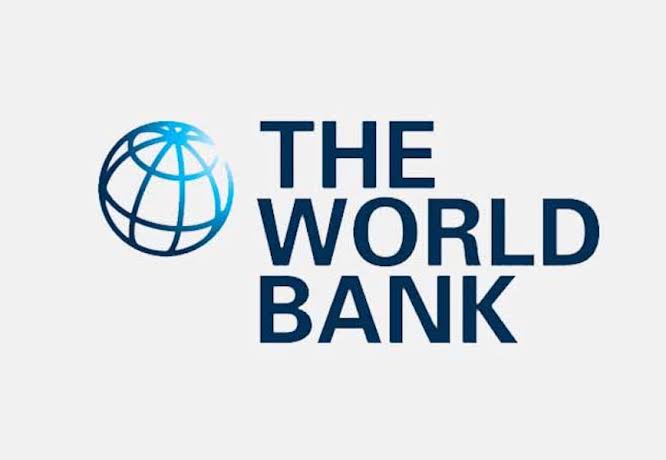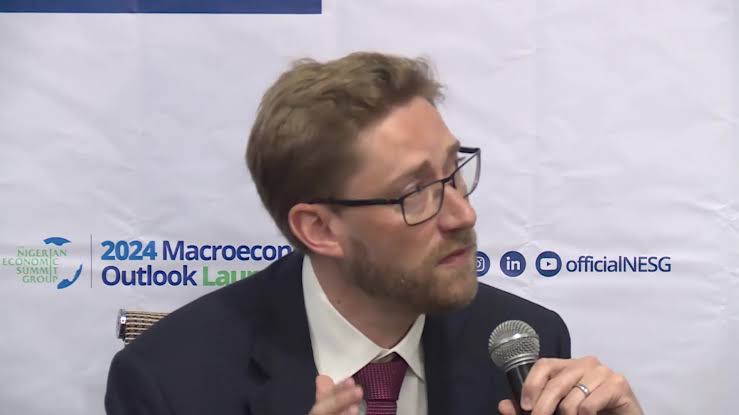Alex Sienaert, the World Bank’s Lead Economist for Nigeria, recently discussed the limited impact of the recent increase in Nigeria’s minimum wage, noting that it will benefit only a small fraction of the working population. Speaking at the launch of the Nigeria Development Update (NDU) report in Abuja on Thursday, Sienaert highlighted that the wage hike will directly affect only a small portion of Nigerians, specifically just 4.1% of those of working age.
During his address, Sienaert elaborated on how the increase in minimum wage, though noteworthy in itself, will have a limited effect due to the fact that it primarily targets formal wage earners. He explained, “The Federal Government of Nigeria increased the minimum wage, which will affect only a small share of the population. Raising the minimum wage directly affects only 4.1% of working-age Nigerians.”

Sienaert emphasized that tackling poverty requires more than merely expanding employment opportunities. He stressed the need for the creation of productive jobs that provide sustainable incomes, arguing that jobs alone do not necessarily lead to an escape from poverty. The World Bank’s latest report echoes this point, stating, “Being employed, however, is no guarantee of being able to escape poverty. Many jobs are not productive and therefore remunerative enough to afford a life beyond poverty.”
The report went on to underscore the importance of job creation for inclusive economic growth. However, it pointed out that the kinds of jobs created must leverage Nigeria’s rapidly growing population, referred to as the country’s “demographic dividend.” This term refers to the economic growth potential that can result from shifts in a population’s age structure, especially when the working-age population outnumbers dependents.
The report also discussed the limitations of policies that focus on formal wage earners, such as public sector workers or those affected by minimum wage legislation. Such policies, according to the report, often do not reach the poorest segments of the population, particularly those who do not hold formal wage jobs. It highlighted, “Policy initiatives that cover only highly-formalised wage jobs, including policies focused on public sector workers and minimum wage legislation may not reach many of Nigeria’s poorest workers directly.”

Sienaert pointed out that while increasing demand for wage workers should be a priority for policymakers, the vast majority of employed Nigerians, especially those from poorer households, do not hold formal wage-earning jobs. This fact limits the effectiveness of policies targeting subsets of wage workers. The report expanded on this, noting, “While increasing the demand for wage workers is a key policy priority, the vast majority of employed Nigerians, especially from poorer households, do not currently hold such jobs. This limits the direct effects that policies focusing on subsets of wage workers can have on poverty.”
The report further highlighted the inequality in job distribution, particularly within the public sector. Public sector jobs, it noted, are not only rare but are often filled by individuals who are relatively better off. These jobs also tend to offer higher pay compared to private sector or other types of wage jobs, even when accounting for individual qualifications. This disparity suggests that barriers exist that prevent poorer Nigerians from accessing these more lucrative public sector jobs. The report stated, “In particular, public sector wage jobs are not only rare and disproportionately occupied by comparatively better-off Nigerians; they also pay significantly more than private sector and other types of wage jobs, even after taking individual characteristics into account, suggesting there are additional barriers to entry into public sector jobs, which may lock out the poor and economically insecure.”
Additionally, the report highlighted shortcomings in the enforcement of minimum wage legislation, pointing out that even within the private sector, a significant number of workers earn less than the prescribed minimum wage. It noted that around one-third of private sector wage earners receive less than the mandated minimum wage, highlighting the imperfect enforcement of wage laws. “Similarly, minimum wage legislation may not directly reach the poorest workers because they do not hold wage jobs and around a third of private sector wage earners receive less than minimum wage anyway, demonstrating that enforcement is imperfect,” the report read.
The report warned of potential negative consequences for government finances due to higher wages, particularly in the public sector. It called for more comprehensive employment policies to effectively reduce poverty, suggesting that focusing solely on wage increases or formal employment policies is insufficient to address the broader economic challenges facing Nigeria. Instead, a more holistic approach to job creation and income generation is necessary to ensure that all Nigerians, especially the most vulnerable, have access to opportunities that can lift them out of poverty.
































